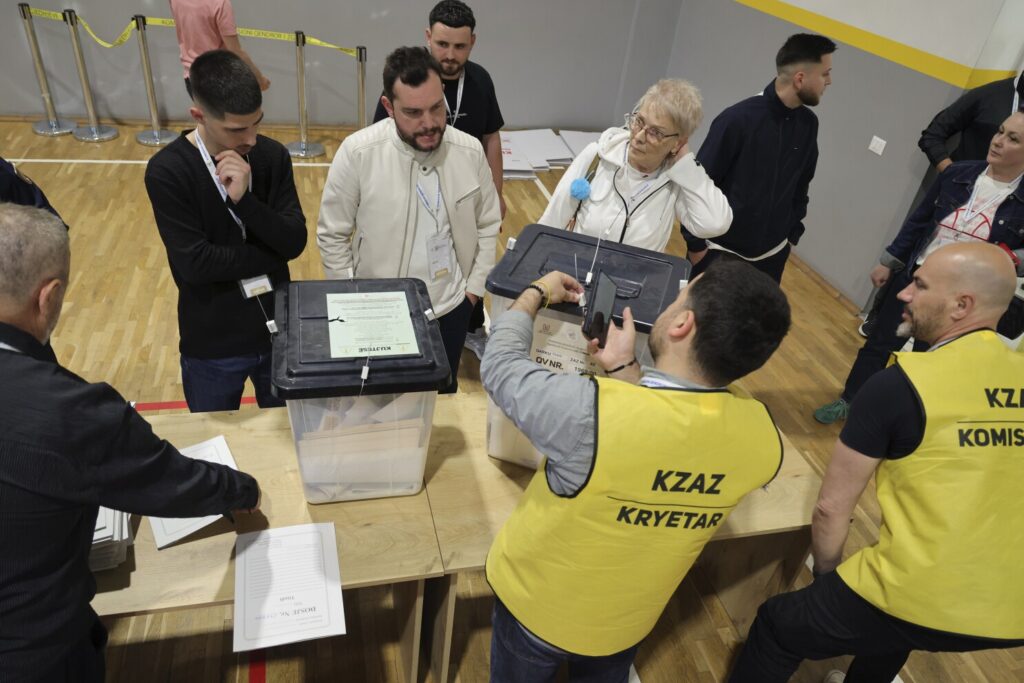Preliminary outcomes from Albania’s parliamentary elections held on Tuesday indicate a decisive win for the ruling Socialist Party, which garnered significant support from voters endorsing the nation’s challenging path toward European Union membership, as well as Prime Minister Edi Rama’s campaign for a fourth term in office.
With approximately 97% of ballots tallied, Rama’s leftist party secured 52.09% of the votes, translating to 82 seats in the 140-seat Assembly. The opposition coalition led by the center-right Democratic Party, headed by Sali Berisha, received 34.43% of the votes, equivalent to 52 seats. The remaining seats will be allocated to three smaller parties, allowing the Socialists the possibility of governing independently.
Voter turnout was reported at 42% of the 3.7 million eligible voters, reflecting a decrease of 4% compared to the previous election cycle four years ago.
In response Berisha’s Democratic Party has raised concerns regarding potential irregularities in the electoral process including issues with ballots sent from abroad. They have accused the ruling Socialists of engaging in unethical practices such as collaborating with criminal organizations to influence outcomes, ballot purchasing, and employing various coercive tactics. Berisha stated, “There is no possibility of reconciling with such elections. We will not accept these results,” indicating the Democrats’ intention to dispute the election’s legitimacy.


